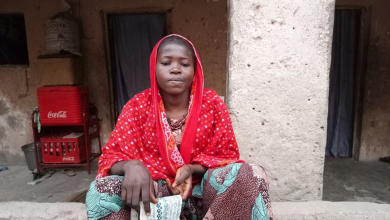
|
Getting your Trinity Audio player ready...
|
In commemoration of International Education Day, Naija Feminists Media hosted a virtual event on X Space on January 31, 2025, themed “Translating Women’s Educational Excellence in Mass Communication to Leadership in Newsrooms.”
The discussion featured distinguished guests Lucy Imaji, Angel Joanne Okonkwo, and Favour Eboatu, who explored the barriers preventing women’s academic achievements in mass communication from translating into leadership roles in media organisations. They identified five key challenges, including:
- Access: The system limits women from taking leadership positions in the newsroom. As emphasised by Lucy Imaji, women are neglected for leadership positions in editorial roles due to the biased belief that prioritises males for leadership positions. This bias stemmed from societal expectations and structural biases, among others. A Reuters Institute report on gender in newsroom leadership found that only 22% of top editors across 240 major news outlets were women. Meanwhile, women make up about 40% of journalists globally.
- Limited opportunities for women in the workplace
Despite women’s educational excellence, newsrooms often provide them with limited access to opportunities that are essential for their career advancement. More opportunities are open to men. An article published by the Columbia Journalism Review in 2021 revealed that women are less likely to be assigned relevant news beats like politics or business, which are the stepping stones to editorial leadership. Instead, they are disproportionately assigned to lifestyle or human-interest stories, which do not lead to promotions as frequently. This evident discrimination limits their access to opportunities.
- Lack of mentorship
Mentorship is very crucial and a stepping stone for career advancement. The newsroom can be brutal sometimes, but a guardian who mentors one through can not be overlooked. A study by the International Women’s Media Foundation (IWMF) found that two-thirds of female journalists lacked access to influential mentors or sponsors, compared to one-third of men—this lack of mentorship limits women’s ability to navigate newsroom politics and reach leadership roles.
- Discriminatory policies
Most policies implemented in the newsroom are unfavourable to women. Even maternity leave is implemented in a biased manner. Also, there is the issue of unequal pay, gender-based harassment, and demanding schedules.
- Cultural Factor
In a patriarchal society like Nigeria, culture takes the lead. Thus, Nigerian women in the newsroom face more challenges due to their gender and are often neglected for leadership positions. According to a report by the Wole Soyinka Centre for Investigative Journalism (WSCIJ), only 25.7% of women occupy leadership positions in the Nigerian media. This statistic reflects the patriarchal belief in the newsroom in the country.
The guest speakers advocated for structural policy changes to accommodate women for mentorship and opportunities. They also advised that women should actively pursue their goals and seek mentors.






